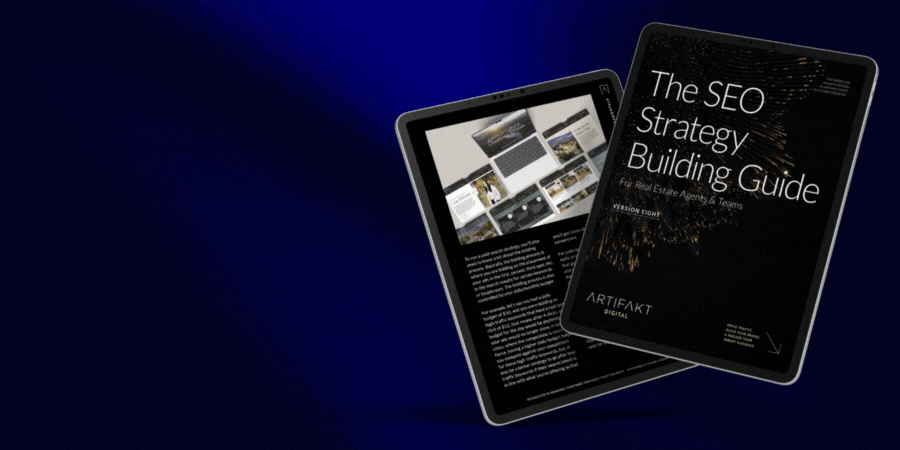Understanding SEO Titles and Meta-Descriptions on Your Real Estate Website

As part of your basic real estate SEO strategy, your goal is to get your content to rank in search results to that you can get more traffic to your website.
That’s where most agents think SEO ends, but realistically, good SEO practices go a step further than that.
A better goal of your SEO strategy is to get your content to rank in search results, for the right people at the right time, to get traffic from that target audience to your website.
And there’s a big difference between the two.
For example, if you get 1000 visitors to your website, that might be a fantastic metric for you. But if none of those 1000 people have any interest in real estate at all, does that metric really matter? Wouldn’t it be much better if you only got 50 people to your website instead, but all of those people were within your specific target audience and interested in real estate?
You’d get much better results that way.
While SEO, on it’s own, is a massive, complex subject that a lot of people dedicate their lives to, there are some components of it that are easier to manage than others; and as an agent planning a basic SEO strategy, there are easier parts of it that you can focus on to make your strategy more effective.
Your SEO titles and meta-descriptions are one of those focuses because you can easily control them.
First, what exactly is an SEO title and meta description?
They’re the title and description that display when someone finds when your content displays in a search result. For example, here’s how one of our blog posts displays in a search result, with the SEO title and meta-description broken out:

Depending on how your website is built, if you’re able to write custom SEO titles and meta-descriptions, than you should definitely be doing it for every single piece of content or listing that you post.
★ How you, your business, and your website appears in search results is a big part of your overall online presence strategy. To learn more about that, check out these posts:
- How to Effectively Monitor Your Brand’s Online Presence
- How Your Real Estate Referral Business is Tied to Your Online Presence
Remember, when you write meta-descriptions, the first thing is to understand exactly who you’re writing them for, which is:
- For search engines, so they’ll display in search results.
- For humans, so they’ll want to click them once they read them.
It’s easy to forget that one of your audiences is actual human beings, and instead, focus on writing for search engines.
Often, this will also be the very first interaction someone has with your brand and your business, and as we all know: first impressions matter. How your content displays in search is a critical part of that first interaction.
So, what makes a good SEO page title and meta-description?
There’s really no specific, agreed upon answer, however, the main thing to remember is the audience you’re writing it for. Getting your content to display in a search result is only 50% of the goal; the other 50% is to get an actual human to want to click on it.
★ Want to learn more about SEO strategy? Have a look at these posts:
- Optimizing Your Content for Humans (And Not Just for Search Engines)
- Writing Content for SEO as a Real Estate Agent
- How ‘Dwell Time’ and Quality Content Work Together to Improve SEO
The general rule I like to use is that the SEO title should include the overall topic of the content, with your main search topic included, plus the business name; and the description should be a general summary that again includes the main search topic, written in a way that someone would want to click it if they were searching for something related to that main search topic.
For example, if you were writing content about “the importance of working with a local real estate agent”, it could look something like this:
- Main Search Topic: Local Real Estate Agent
- SEO Page Title: (50-60 character limit) Why You Should Always Work With a Local Real Estate Agent | [Your Name]
- SEO Meta-Description: (150-160 character limit) If you’re thinking about buying or selling a home, you should always work with a local real estate agent that understands the neighborhood. Here’s why.
In the above example, we’re including our main search topic for search engines, and as well, the description is written in a way that’s appealing to actual humans.
If you were actually doing a search for the main search topic above, and you saw and read this SEO title and meta-description in a search result, there’s a good chance you’d click on it, and more importantly, see a positive result on the other end that backs up your search.
As mentioned, SEO is a complex topic, but by understanding some of the basic components (especially the basic components that you can directly control), you’ll be setting your basic SEO strategy up for success, improving your general online presence, and most importantly, helping to attract the right people, at the right time, for the right reasons; and that’s what successful SEO is all about.
Want to learn more about SEO and get more traffic to your website? Our SEO Strategy Building Guide is a mix of curated content and self-guided workbook that will help provide insight on how you can build and implement a modern SEO and overall search strategy.






















